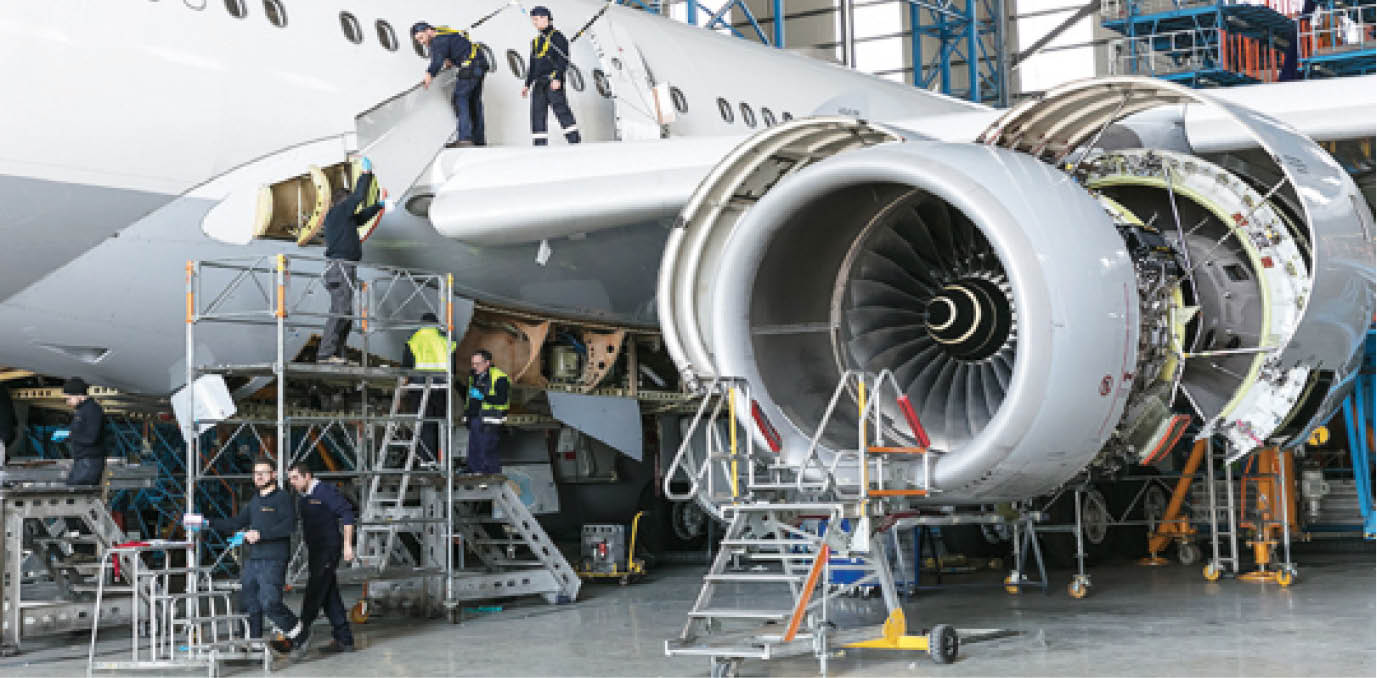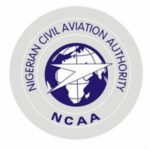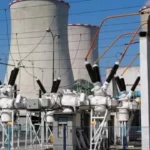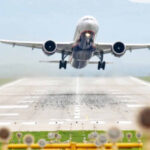The COVID-19 lockdown saw many domestic flights suffering with dozens of aircraft trapped at maintenance facilities abroad.
The ease of the lockdown has coincided with exchange rates climbing and airlines struggling.
Our correspondent analyses what is happening in the sector.
- ‘What Does Gumi Know about forests?’ – Masari hits prominent cleric over banditry
We are coming after you, Air Chief warns bandits
Despite the restart of the aviation industry last year after the outbreak of COVID-19 and the subsequent lockdown, it is not Uhuru yet for domestic airline operators.Dozens of aircraft are stranded abroad amidst the second wave of the pandemic, our correspondent reports, adding that the situation has been compounded by the sharp rise in foreign exchange rates, which has disrupted airlines’ operations.
Passengers have experienced delays and occasionally cancellations of flights attributed to operational reasons by domestic airlines still struggling to recover from last year’s lockdown.
With the ease of the lockdown, many operators had hoped for timely delivery of aircraft that were stranded abroad during the lockdown when most Maintenance, Repair and Overhaul (MRO) facilities shut down.
Daily Trust learnt that the lockdown coincided with the time many aircraft belonging to the domestic carriers were due for a comprehensive check for which they must be flown abroad as the country does not have the required MRO facilities.
At least 80 to 90 per cent of aircraft operating locally must be serviced after a minimum of 18 months whether flying or not.
Between October and November last year, airlines massively cut flights across all routes as many aircraft were stranded abroad. Insecurity in the country meant that despite the shortage of flights, many still preferred air travel to road trips.
But the lockdown eased and MRO facilities became busy and some aircraft were delivered for the domestic airlines. Dana Air for instance took delivery of two aircraft from maintenance in January to beef up its operation. Similarly, Air Peace also received some.
But the second lockdown in Europe meant that Air Peace, the largest domestic operator in the country, has faced delays in the arrival of most of its aircraft.
The skeletal service being offered by most MRO facilities means further delays for other airlines as well.
Airlines have struggled to get their aircraft from these facilities. More so, the constraints of sourcing for foreign exchange, according to them, worsened their plights, leading to the disruptions being experienced as they continue to ration route services.
Late in January, Air Peace took delivery of the first of 10 brand new Embraer 195-E2 aircraft it ordered in April 2019. During a ceremony to receive the aircraft at the Nnamdi Azikiwe International Airport, Abuja, attended by many dignitaries including the Minister of Aviation, Senator Hadi Sirika, the Chairman of Air Peace, Mr Allen Onyema, disclosed that the aircraft were scheduled to arrive in October 2020 to boost the airline’s expansion drive but the delivery was stalled due to forex scarcity.
Amidst the forex challenge, the airline, it was learnt hopes to take delivery of three new planes before the end of the month barring any unforeseen circumstances. This would help it normalize its operations and service new routes under its no-city-left-behind drive to connect more Nigerian states.
Beside Air Peace, which is the hardest hit, being the largest operator, new airlines operating in the country are said to be slightly insulated from the maintenance constraint as it would take the next 10 to 18 months before their aircraft would be due for C-checks.
However, experts and players in the industry say opening a special forex window for airlines is critical to stabilizing their operations and reducing the challenge of flight disruptions faced by passengers on a daily basis.
Speaking with Daily Trust, Director of Engineering, Ibom Air, Lookman Animashaun, an engineer, said behind the operational challenge confronting domestic operators is the scarcity of forex. He said while many aircraft remain stranded in MRO facilities abroad, the foreign exchange needed to meet payment obligations is not available.
He said, “Foreign exchange has become a hindrance to good enterprise especially when it comes to airline operations in Nigeria. The aviation industry is dollar-based. Everything in the aircraft is being imported and is being paid for in dollars. All airlines now or anybody that has anything to do with aviation is having serious problems sourcing for foreign exchange.
“For them to get it, they have to go to the black market to source for it and you know what that means. CBN is not ready to give as appropriate and if they give, it is not enough to do anything. You ask for $1m, they would give $10,000 or $20,000. So you are forced to go to the black market to source for it if you must operate.
“And what that means is that we are buying at a high cost. So most of the money that is being made in operations, the majority of it is going into sourcing for foreign exchange. That is why you see most of the CEOs now shouting. It didn’t just start today, it has always been there but it is getting worse. The naira to dollar is getting worse, now it is almost N500 per dollar. How much are you selling the ticket for a one-hour flight now? That is why I keep saying that any airline that is selling tickets at N20, 000, maybe they have a way of sourcing for foreign exchange different from where others are sourcing it.”
Animashaun observed that given Nigeria’s lack of MRO facilities, they still have to ferry the aircraft abroad for the regular C-checks.
He added, “This is the situation at most MROs. Most aircraft are not flying. They are at various MRO facilities. Even if the MRO can do one thing or the other, the airline does not have money to pay for it. That is why it is taking a long time for aircraft to move out of maintenance facilities.
“The only thing the government can do is to support the airlines with the foreign exchange because we don’t have the MRO that can take care of all the requirements of Nigerian airlines today in Nigeria. We still have to go out. So what the government should do is to ensure that they help airlines by providing foreign exchange for them for their needs.”
Capt. Roy Ilegbodu, CEO of Arik Air, said the foreign exchange has gone up by over 40 per cent since the COVID-19 outbreak.
He said, “We still face significant challenges with foreign exchange, which is one big issue. The exchange rates have virtually gone up significantly by approximately 40% since COVID struck. You realize that our industry itself is quite tied to the supply from outside Nigeria.
“So significant sums of money are spent on maintenance, the aeroplanes daily must be maintained. You can’t compromise the maintenance of aircraft.”
The Assistant Secretary of the Aviation Roundtable, Mr Olumide Ohunayo in a chat with our correspondent said the government must make a special forex window available for airlines to have seamless operations.
He said the government must monitor the payment and ensure that it is paid “directly to such suppliers and ensure that what you pay for in the invoice is supplied.”
“It’s very key to monitor it so that it won’t be abused and we need to clarify it here when you begin to ask for palliatives, subsidies when we ask for some support here, we are asking this support to come for commercial and scheduled flights, not non-scheduled.”

 Join Daily Trust WhatsApp Community For Quick Access To News and Happenings Around You.
Join Daily Trust WhatsApp Community For Quick Access To News and Happenings Around You.


